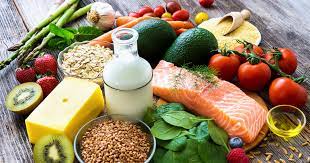5 ESSENTIAL VITAMINS FOR BRAIN HEALTH AND MEMORY
A healthy diet can help you lose weight, feel better, and reduce the risk of age-related conditions such as heart disease and stroke. But eating nutritious foods can also lower the risk of cognitive decline as we age. A team of researchers found that older adults who consumed the most nutritious food lowered their risk of cognitive decline by nearly 25% compared to those with the least healthy diets. They also found that a diet based on certain foods may reduce the risk for Alzheimer’s disease by as much as 50%.

The top 10 foods they identified for brain health include leafy green vegetables, vegetables, nuts, berries, olive oil, whole grains, beans, fish, poultry and wine. Foods to avoid include sugary foods, saturated and trans fats, red meat, fried food, and cheese.
Read on to learn more about the essential nutrients contained in these brain-healthy foods and how they can help keep your mind sharp and your memory intact.
- Omega-3 Fatty Acids
These healthy fats play a key role in brain health. Omega-3 fatty acids promote signaling between nerve cells, allowing the brain to communicate quickly and easily. They’re also thought to improve concentration and are one of the best nutrients for memory. We can get them by eating fatty fish (salmon or sardines), eggs, avocados, walnuts, and flaxseeds.
- Lycopene
This antioxidant helps reduce inflammation and supports brain growth. Lycopene’s antioxidant properties also help keep bones strong and eyes healthy. Tomato products, such as ketchup, tomato juice and pizza sauce, have high amounts of lycopene. Pink and red fruits and vegetables, such as watermelon, bell peppers and red carrots, are also good sources of this important antioxidant.
- Flavonoids
Flavonoids, another type of antioxidant, may lower the risk of developing Alzheimer’s disease by almost half. The top sources of flavonoids include pears, oranges, kale, beans, broccoli, spinach, tea, wine, tomatoes and olive oil. Cocoa is another way to get your flavonoid. Researchers found that eating dark chocolate (70% cacao) improved brain plasticity, which is crucial for learning. Cacao flavonoids may also promote neuron and blood vessel growth in parts of the brain involved in memory and learning.
- Choline
Choline works as the brain’s messenger, maintaining communication between brain cells and muscles. It also helps to reduce inflammation and is one of the best nutrients for memory. Eggs, brussel sprouts, lima beans and wheat germ are good sources for choline. Daily choline supplements are also an option.
- Fiber
There are two types of fiber, and both are good for brain health. Digestible fiber dissolves in water, forms a gel, and helps lower cholesterol levels and regulate blood sugar levels. High cholesterol levels are associated with an increased risk of stroke, and high blood sugar levels may increase the risk of Alzheimer’s. Onions, oats, beans, bananas, berries, oranges, apples and carrots are good sources of digestible fiber. Insoluble (nondigestible) fiber helps nurture gut bacteria that supports brain growth. Insoluble fiber is found in nuts, whole grains, brown rice, flax and rye.
